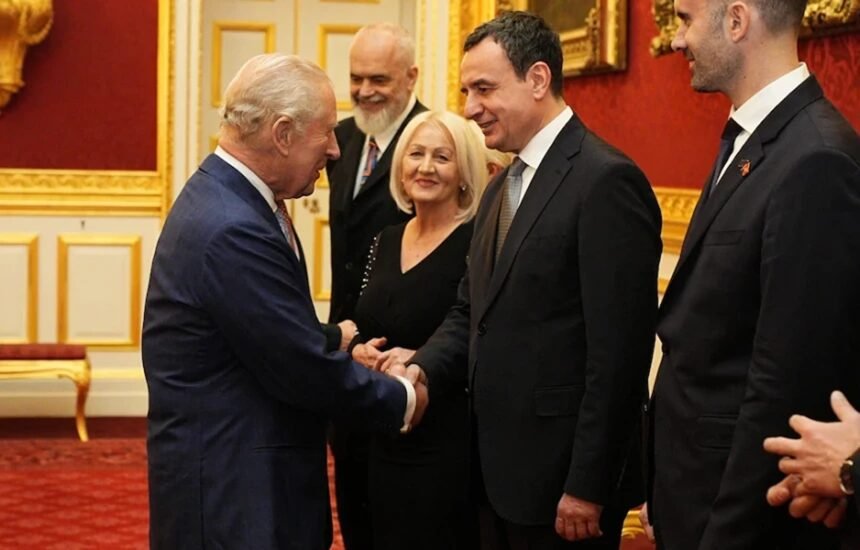A new report by the think tank “New Diplomacy Project”, led by former NATO Secretary-General George Robertson, has called on the United Kingdom to reassert its leadership in the Western Balkans—with a key focus on doubling diplomatic efforts for Kosovo’s recognition by European Union member states.
The report, published ahead of the Berlin Process Summit in London, outlines how the UK, EU, and NATO should act to stabilize the region.
According to the report, the first recommendation is for Britain to assume a leading role in the Western Balkans, spearheading the creation of a proposed Joint Force for the Balkans. This force would primarily be stationed in Kosovo and Bosnia and Herzegovina, serving as a support structure to KFOR in the case of Kosovo. The authors also call for increased British investment in the region as part of this renewed leadership.
The second recommendation urges Britain to advocate for NATO enlargement—specifically including Kosovo and Bosnia and Herzegovina. The report highlights that Kosovo’s path to NATO remains obstructed by non-recognizing EU states, and that Britain should intensify diplomatic efforts within the QUINT framework (alongside the U.S., Germany, France, and Italy) to secure recognition.
It also notes that countries such as Spain, Slovakia, and Romania—which recognize the State of Palestine—should be encouraged to apply similar principles toward recognizing Kosovo. Furthermore, the report suggests that a bilateral security agreement between Kosovo and Bosnia could serve as a strategic signal to support both states’ eventual NATO accession.
The third recommendation emphasizes that Britain should act as an honest broker in the region, actively intervening to revive the “dying” Kosovo–Serbia dialogue. It calls for stronger British pressure for Kosovo’s membership in the Council of Europe and for redoubled diplomatic action to achieve recognition from the five EU member states that still refuse to recognize Kosovo.
The report also warns of major challenges to Balkan stability, particularly Russian influence, noting that Serbia and Russia have cooperated to provoke the most severe security crisis in Europe outside the war in Ukraine. It specifically references the Banjska terrorist attack in northern Kosovo, carried out by extremists linked to the Serbian government of Aleksandar Vučić.
Since then, the Government of Kosovo has increased military investments to counter potential threats. However, the report stresses a significant imbalance in military capabilities between Kosovo and Serbia. It notes that although NATO-led KFOR troops provide a deterrent layer, there remains strategic ambiguity about how the mission would respond to a potential Serbian incursion into northern Mitrovica, possibly backed by Russia.
Moreover, the report underlines that Kosovo’s non-membership in NATO leaves it outside the protection of Article 5, and that KFOR’s mandate does not prevent sub-threshold hybrid activities, such as Serbian electoral interference through its support of the Belgrade-backed Serb List in Kosovo.
Other regional challenges cited include Chinese influence, illegal migration, organized crime, and a declining trust in Europe.
The 12th Berlin Process Summit, scheduled for Wednesday in London, will gather the six Western Balkan leaders to discuss peace, stability, regional cooperation, economic integration, and good-neighborly relations.







